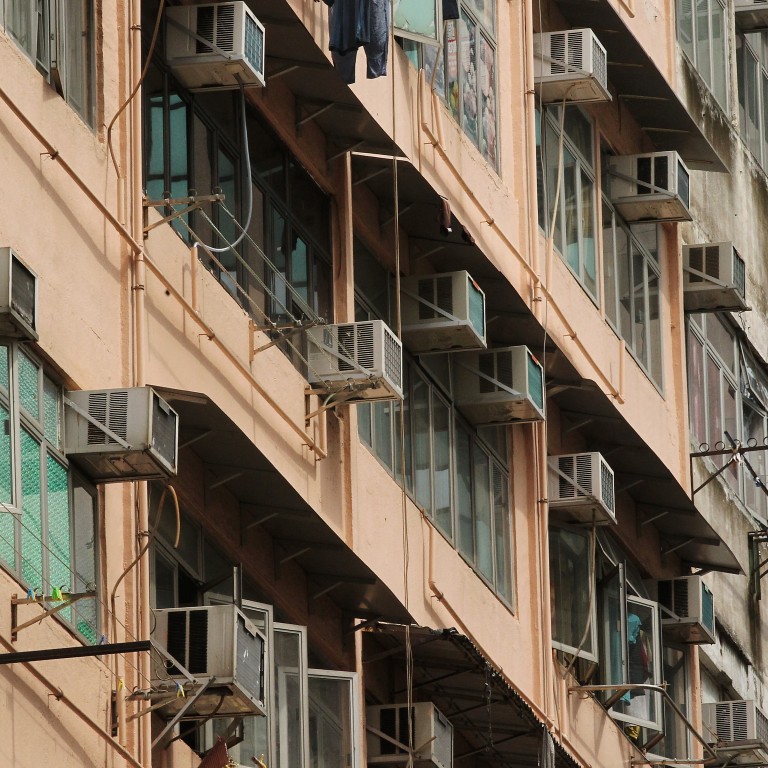
Hong Kong government must step up enforcement of law against dripping air conditioners
More than 170,000 complaints to the Food and Environmental Hygiene Department over 10 years to 2014 - an average of 17,000 a year - is indicative enough that Hong Kong residents find dripping air conditioners a public nuisance. It would be good to report that as a result of the department's persistence, the number has been falling over that decade. After all, running an air conditioner that drips water onto streets and passers-by is punishable by a fine of up to HK$10,000. But last year alone there were 19,700 complaints, compared with 10,116 in 2004, indicating the opposite.
In that case, it would be good to report that the department is showing vigour and a sense of urgency in issuing warning notices, and where necessary following up with prosecutions. But over those 10 years the authorities issued warning notices to only 5,256 owners and prosecuted just 12, including three last year. In the first half of this year 8,900 complaints did not result in a single prosecution. As we have reported, the department's explanation is that "in most cases, when the FEHD issues a rectification request or nuisance notice, the flat owners or occupants concerned would rectify the water drippage problem of their own accord". The department also said it had "all along been vigilant about the nuisance caused by water dripping from air conditioners".
Almost word for word, these answers recycle those Secretary for Food and Health Dr Ko Wing-man gave to lawmakers two years ago, which seems typical of the effort the department puts into this problem. They are as unconvincing now as they were then, given the rise in the number of complaints. Dripping air conditioners are not only a public nuisance; they pose a danger to pedestrians, especially around queues at bus stops when people must step onto busy roads to avoid getting wet. Health professionals say they also pose a public health risk because the surface water they create can play host to bacteria and fungi, and lead to the spread of legionnaires' disease.
The 's special report on the problem focused on Kowloon around Nathan Road, but it is not confined to that locality. It is a stain on our image unworthy of Asia's self-proclaimed world city. The government should devise an effective campaign to clean it up, starting with more diligent enforcement of the law and including, if necessary, an expansion of the department's inspection resources .

